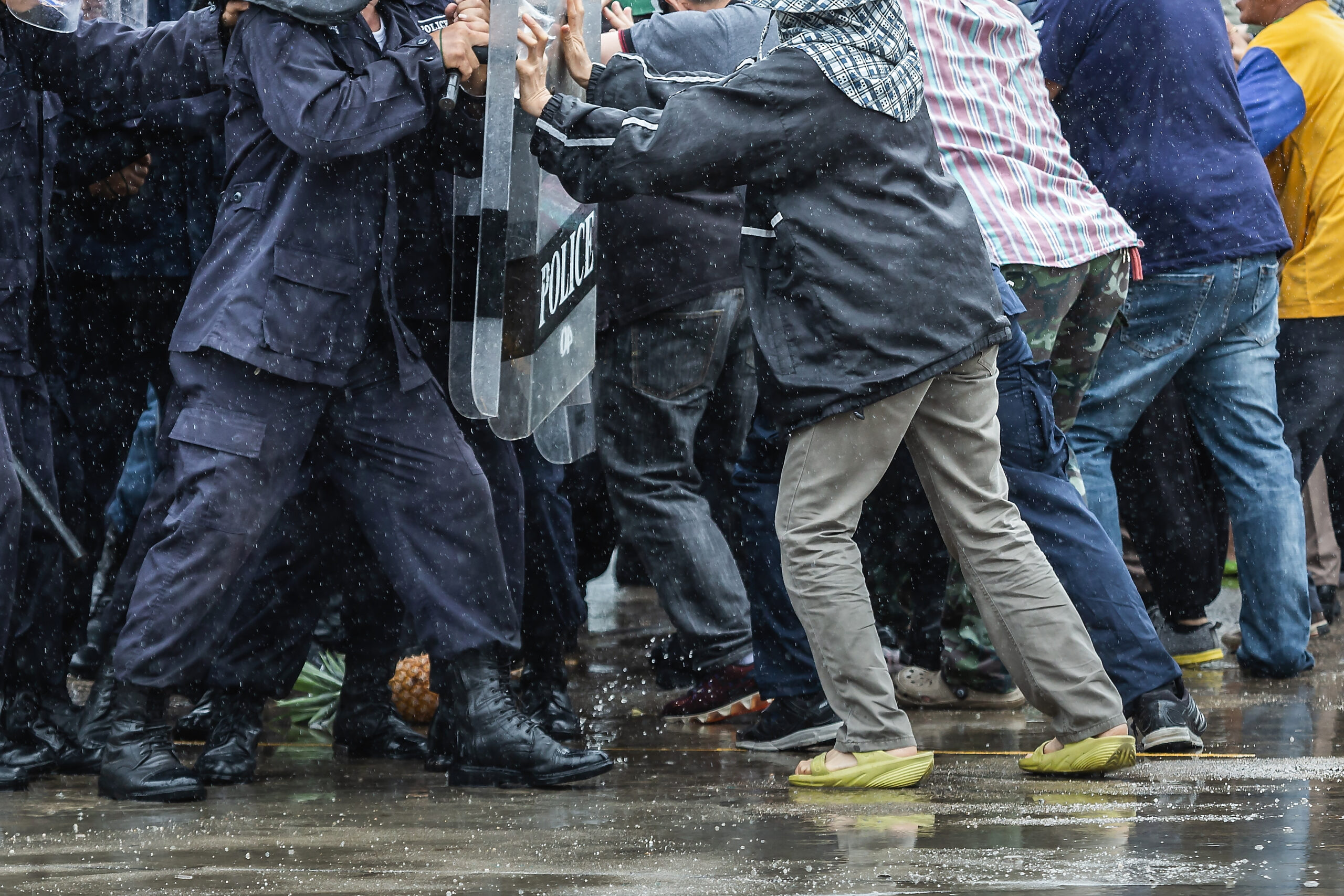13 Defendants Facing Federal Rioting Charges
October 12, 2021

Federal Criminal Charges Related to the Capitol Breach
The FBI depends on U.S. Marshals to investigate the crimes that have taken place to ensure those present receive federal warrants. The D.C. police are also investigating the riots to find people who participated in breaking into the Capitol but who have not yet been charged. So far, 13 defendants have been charged with federal crimes, including:
- Knowingly entering or remaining in any restricted building or grounds without lawful entry
- Making interstate threats to Speaker Nancy Pelosi
- Violent entry and disorderly conduct on Capitol grounds
- Theft of public money, property, or records
- Possession of an unregistered firearm (destructive device)
- Carrying a pistol without a license
- Assault on a federal law enforcement officer
- Carrying or having readily accessible, on the grounds of the United States Capitol building, a firearm, and ammunition
- Knowingly entering or remaining in any restricted building or grounds without lawful authority; or knowingly, with intent to impede government business or official functions
In addition to those facing federal charges, 40 people have been arrested and charged in Superior court for firearms-related crimes, curfew violations, and unlawful entry charges. The FBI is currently asking the public to turn in information related to people inciting or promoting violence of any kind. We expect to see more people facing federal and state charges as there were hundreds of people involved in breaching the Capitol building.
300 People Facing Federal Charges for Rioting Throughout the Summer of 2020
- Arson
- Assaulting a law enforcement officer
- Attempted murder
- Burglary of a federally-licensed firearms dealer
- Damaging federal property
- Malicious destruction of property using fire or explosives
- Felon in possession of a firearm
- Unlawful possession of a destructive device
- Inciting a riot
- Felony civil disorder
35 defendants have been charged with assaulting a law enforcement officer. One person approached a U.S. Marshal Deputy and allegedly hit him with a wooden baseball bat. Another defendant assaulted a U.S. Marshal with an explosive device. Additionally, one man allegedly shot 11 times toward police officers, including a federal officer. Most of the charges were related to civil disorder and rioting. In multiple incidents, people used their social media platforms to incite assaults and destruction against law enforcement officers. Two Pennsylvania men have been charged with driving to Philadelphia with the intent to participate in a riot and commit acts of violence. Charges also included carjacking and robbery.
Federal Laws Prohibiting Rioting
There are two federal laws that outlaw rioting. The first statute defines rioting and provides details of rioting, and the second statute explains the specific elements prosecutors must prove to secure a conviction under federal law. Under federal law, rioting includes a public disturbance that involves at least one act of violence committed by at least one person who is part of a group of three or more people. In a riot, the prosecution must prove:
- When the actions of the group constitute a clear and present danger.
- When the actions of the group result in injury to a person or property.
- When the group’s actions threaten any group member to commit an act of violence, or the threat can be carried out immediately, resulting in property damage, injury, or causing clear and present danger.
- Rioting also includes promoting, encouraging, organizing, or participating in carrying out a riot. Inciting a riot can include suggesting that other people riot or instigating other people to riot.
Defending Against Rioting Charges
Federal law clarifies that writing and inciting writing does not include merely writing or speaking or advocating for ideas. A person’s written or oral expression of beliefs does not constitute rioting as long as those beliefs do not include supporting acts of violence or asserting the right to commit acts of violence. Additionally, defendants cannot be charged with writing under federal law unless they travel in interstate commerce to engage in rioting or use interstate or foreign commerce facilities such as the radio, mail, telephone, or television to intentionally participate in or incite rioting.
Proving all of the elements in a rioting charge is more complicated than many people expect. When prosecutors do not have all of the evidence to prove that a defendant has engaged in writing beyond a reasonable doubt, the court cannot convict the defendant. Additionally, when law enforcement officers do not uphold a defendant’s constitutional rights, his or her lawyer can see to have evidence gained by the search or seizure thrown out.
